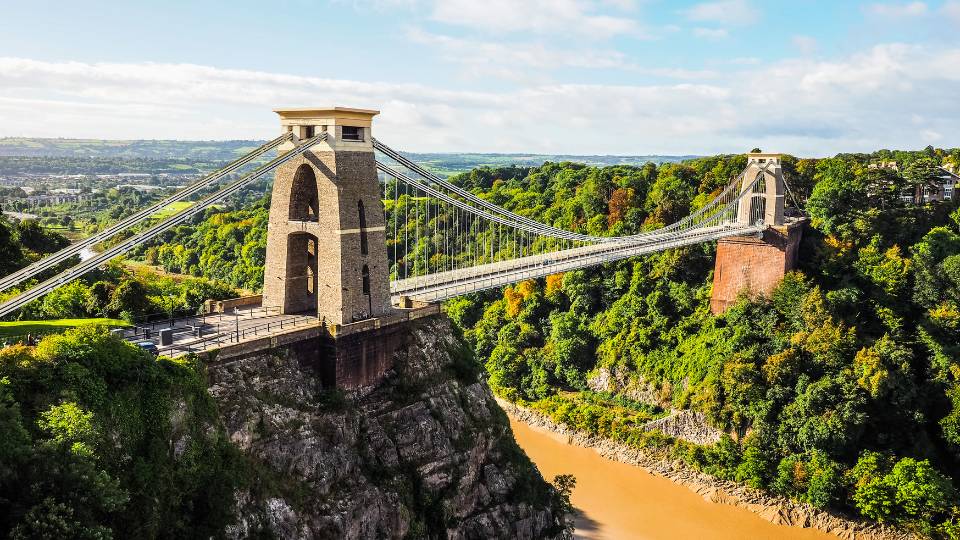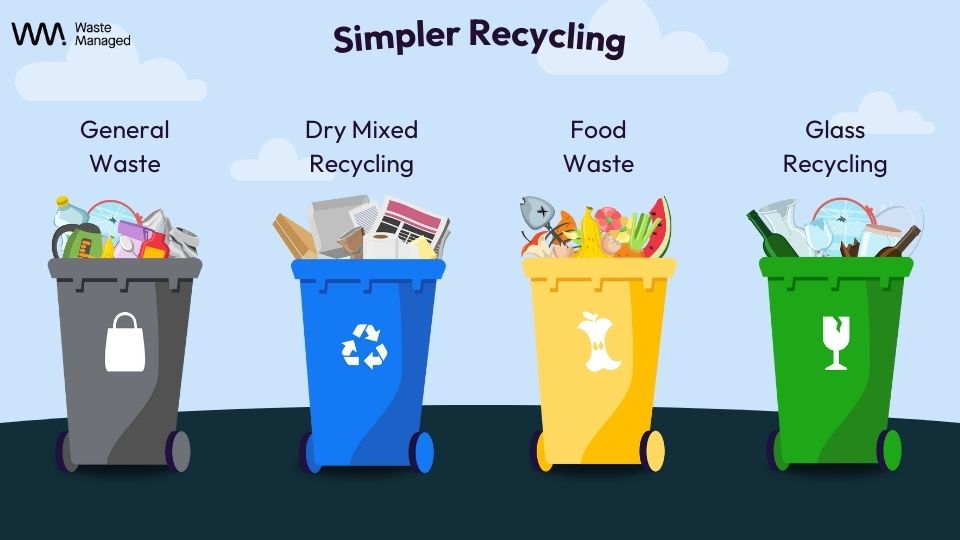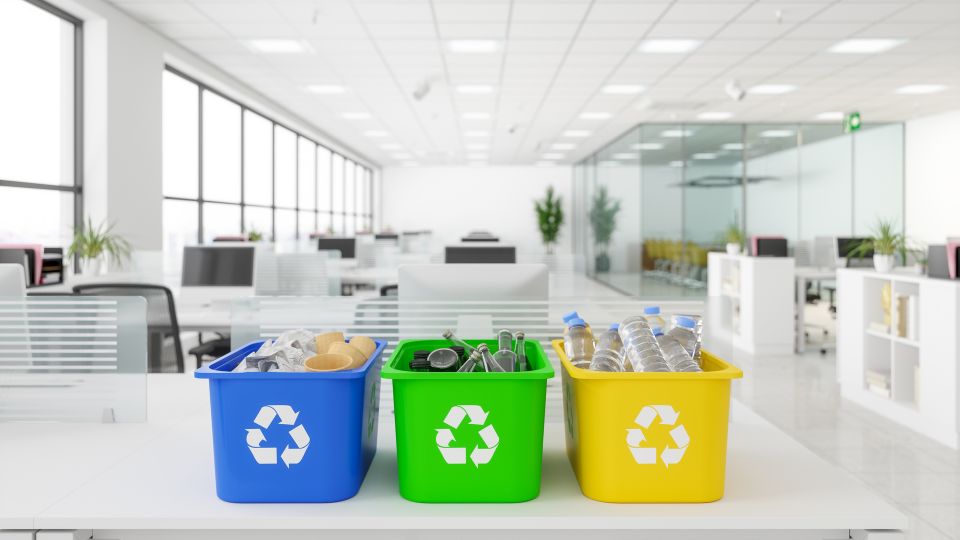
Bristol’s recycling rates are the best in the country, currently sitting at 46%, surpassing the national average of just 44.1%.
However, the method behind this stark difference has caused large upset with the residents and business owners throughout the city.
Setting a fantastic precedent for the rest of the country, and with the deadline day for the enactment of the Environmental Act 2021 looming, it could be possible that the rest of the country will soon be in the same position as the citizens of Bristol, with 13 individual bins to put out every week and counting.
Bristol’s Over-Ambitious Recycling Scheme
Bristol, known for its vibrant culture and picturesque landscapes, is currently grappling with a waste management issue that has left residents and business owners alike frustrated with Bristol City Council.
The charming streets of Bristol City Centre, Clifton, Cotham and beyond that once boasted cleanliness and are well-known tourist spots in the South West, are now marred by an overflow of bins, bags, and recycling boxes, creating an unsightly and unpleasant environment for the residents and tourists who happen to be there.
The root of the problem lies in Bristol’s ambitious waste collection system, which, while aiming for sustainability, and creating some positive effects, has raised concerns among locals and business owners in the city.

Affect of Bristol’s Recycling Scheme on its Citizens
Bristol takes pride in being a frontrunner in waste management with a one-of-a-kind, extensive system of 13 waste collections, surpassing any other council in the UK.
This, however, has come with its own set of challenges.
Bristol residents and business owners have found themselves having to meticulously separate their waste into various categories, including general waste, individual dry mixed recycling bins, including plastic, metal, cardboard, paper, glass, and in addition separate bins for food and garden waste.
This almost overwhelming waste separation process has led to an extremely cumbersome routine for citizens living and working within the Bristol area.
James Gubbins, a 44-year-old financial advisor living in Redland, has expressed his frustration at the recycling policy, stating “If you just get one incorrect item in one of the bins, the waste collectors refuse the entire load. The new recycling boxes are often full or overflowing, and with the weather beginning to worsen, the litter can be distributed all over the street. It makes travelling on my bike or enjoying time outside really difficult”.
Annabel Weir and Konstantina Soumilas, a 24-year-old buying assistant and 25-year-old statistician living in BS9, Westbury-On-Trym described the situation as a “waste of time”, stating it takes “ten times as long” to sort the waste into the proper waste bins, and often members of the public will use any bins on the street to dispose of the wrong waste type regardless.
This recycling scheme, although has had a positive effect on the amount of waste being recycled in the Bristol community, has had a negative effect on particularly the more vulnerable people living within the city.
Recycling in Bristol & Inequality
The burden of Bristol’s intricate waste separation process is not equally shared among all residents.
Elderly individuals, particularly those with conditions like dementia, face difficulties remembering which materials belong in which bins.
This raises concerns about the accessibility and inclusivity of the current waste management system.
For new business owners struggling to keep up with the demanding waste routine, or have issues with passersby littering incorrect waste in their business bins, it can be a real struggle to find the time to fix these issues without a reliable waste broker by their side.
Bristol’s Commitment to Recycling
Despite the challenges that are currently being faced by residents and business owners residing within Bristol, the city stands out as a recycling champion among English cities.
Bristol boasts a recycling rate of 46%, compared to a national average of 44.1%.
The commitment to recycling is aligned with the UK government’s goal of achieving a recycling rate of 65% by 2035, set out in the Circular Economy Package policy statement.
In response to concerns about the excessive number of bins made by business owners and residents, current Prime Minister Rishi Sunak abandoned a proposed plan to sort rubbish into seven individual bins.
However, the evidence does seem to suggest that cities that mandate more recycling bins, tend to have better recycling rates, moving closer to a circular economy model.
The government plans to standardise bin collections across all councils by March 2026, enforcing a common rule of three bins, for general waste, dry mixed recycling, and food waste.
Conclusion
Bristol’s waste management challenges in the city highlight the delicate balance between environmental sustainability and practicality.
While the city has made commendable strides in recycling, the current system’s complexity and its impact on residents and business owners, especially the vulnerable, call for ongoing evaluation and potential adjustments.
As Bristol aims to align with national recycling goals, finding solutions that are both environmentally conscious and citizen-friendly remains a priority.








